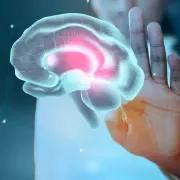Chest Pain and Acidity
In This Article
Chest Pain and Acidity
Parvathy
Updated on November 08, 2024
Medically verified by Dr. Arya
Fact checked by Dr. Fazeela

Neurology
10 min
Chest pain is often associated with serious heart conditions, leading many to worry when they experience it.
However, not all chest pain is heart-related. One common cause of chest pain that is often overlooked is acidity, or acid reflux.
While the pain caused by acidity can mimic that of a heart attack, it is important to understand the distinctions, triggers, and management strategies involved.
Curious to know more about acidity and chest pain?
This blog by Karetrip covers all you need to know about chest pain caused by acidity.
Acidity and related chest pain
Acidity, also known as acid reflux or gastroesophageal reflux disease (GERD), occurs when stomach acid flows back into the esophagus. This reflux can irritate the lining of the esophagus and lead to various symptoms, including chest pain.
The acidic content can create a burning sensation that radiates through the chest, commonly known as heartburn. While it is usually not life-threatening, chronic GERD can have significant impacts on one’s quality of life.
The chest pain caused by acidity is primarily due to the inflammation and irritation of the esophagus. When stomach acid makes contact with the sensitive lining of the esophagus, it causes a burning sensation that can feel similar to the pain associated with heart conditions.
The pain may spread to the neck, jaw, or back and can be accompanied by a sour or bitter taste in the mouth.
Distinguishing Features of Acid Reflux-Related Chest Pain
-
Location: Typically behind the breastbone.
-
Timing: Often occurs after meals, particularly if lying down or bending over.
-
Duration: Can last for a few minutes to several hours.
-
Associated Symptoms: Burning sensation, bloating, belching, regurgitation, and a sour taste.
Common Triggers of Acid-Induced Chest Pain
Understanding the triggers of acid reflux is crucial for managing and preventing episodes of chest pain. Some of the common triggers include
- Dietary Factors
-
Spicy Foods: Can irritate the esophagus and lead to increased acid production.
-
Fatty Foods: Slow down the digestive process, causing the stomach to produce more acid.
-
Citrus Fruits and Juices: High acidity can aggravate reflux symptoms.
-
Caffeinated Beverages: Coffee and certain teas can relax the lower esophageal sphincter (LES), allowing acid to travel upwards.
-
Carbonated Drinks: Increase pressure in the stomach and can trigger reflux.
- Lifestyle Factors
-
Lying Down After Eating: Increases the likelihood of acid moving back into the esophagus.
-
Eating Large Meals: Stretches the stomach, leading to increased acid production.
-
Smoking and Alcohol: Both substances can weaken the LES.
-
Stress: Can exacerbate symptoms by increasing acid production and making the stomach more sensitive to acid.
Differences Between Heart-Related Chest Pain and Acid Reflux
It is essential to differentiate between chest pain caused by acidity and that which signals a more serious heart issue. Here’s how to tell the difference
- Heart-Related Chest Pain
-
Often described as a heavy, crushing pain.
-
Can radiate to the arms, shoulders, or jaw.
-
Typically not associated with meals.
-
Accompanied by shortness of breath, nausea, or cold sweats.
- Acidity-Related Chest Pain
-
More of a burning or sharp pain.
-
Typically worsens after eating or when lying down.
-
Can be relieved by antacids or standing upright.
-
Accompanied by symptoms like belching and regurgitation.
 10 min read
10 min read10 Neurological Benefits of Exercise - Positive Psychology
 10 min read
10 min readChoosing the Right Neurology Hospital: Factors to Consider for Patients and Families
 10 min read
10 min readTop 10 Neurology Hospitals in India
Get a Callback Now
Diagnosing Acid Reflux-Related Chest Pain
If you frequently experience chest pain and suspect it is related to acidity, it’s important to consult a healthcare professional. They may recommend
-
Physical Examination: Assessing symptoms and medical history.
-
Endoscopy: A procedure to visualize the esophagus and stomach to check for signs of inflammation or damage.
-
Esophageal pH Monitoring: Measures the amount of acid in the esophagus.
-
Barium Swallow: X-ray imaging to observe the movement of swallowed liquid through the esophagus.
Managing and Preventing Acid Reflux
Managing acidity involves a combination of lifestyle modifications, dietary changes, and medication. Here are practical steps to reduce and prevent acidity-related chest pain
- Lifestyle Modifications
Maintain a Healthy Weight: Excess weight can put pressure on the abdomen, pushing stomach acid into the esophagus.
-
Avoid Eating Before Bed: Refrain from meals 2-3 hours before lying down.
-
Elevate the Head of Your Bed: This can help prevent acid from moving upwards during sleep.
-
Wear Loose Clothing: Tight clothes can put pressure on the stomach and LES.
-
Quit Smoking: Smoking weakens the LES and promotes reflux.
- Dietary Adjustments
-
Smaller, More Frequent Meals: Helps reduce the likelihood of reflux.
-
Avoid Trigger Foods: Identify and eliminate foods that trigger symptoms.
-
Hydration: Drink plenty of water but avoid excessive fluid intake during meals.
-
Chewing Gum: Stimulates saliva production, which can neutralize stomach acid.
Medications for Acid Reflux
In addition to lifestyle changes, certain medications can help manage acid reflux and chest pain
-
Antacids: Provide quick relief by neutralizing stomach acid.
-
H2 Blockers: Reduce acid production (e.g., ranitidine, famotidine).
-
Proton Pump Inhibitors (PPIs): More potent acid reducers that promote healing of the esophagus (e.g., omeprazole, esomeprazole).
-
Prokinetic Agents: Help strengthen the LES and improve gastric emptying.
Note: Long-term use of certain medications, like PPIs, should be monitored by a doctor as they can have side effects.
Home Remedies for Acid Reflux Relief
Many people find relief from mild acidity symptoms through home remedies. Here are some commonly used natural approaches
-
Ginger: Known for its anti-inflammatory properties, ginger can help reduce acid reflux. Drinking ginger tea or adding fresh ginger to meals may offer relief.
-
Baking Soda: Mixing a small amount of baking soda with water can neutralize stomach acid.
-
Aloe Vera Juice: Known for soothing properties, aloe vera may help reduce inflammation in the esophagus.
-
Chamomile Tea: Can help reduce stress and promote better digestion.
Complications of Untreated Acid Reflux
Ignoring persistent acidity-related chest pain can lead to complications such as
-
Esophagitis: Inflammation of the esophagus.
-
Barrett’s Esophagus: A condition where the lining of the esophagus changes, increasing the risk of esophageal cancer.
-
Strictures: Scar tissue that can cause difficulty swallowing.
-
Chronic Cough and Laryngitis: Stomach acid can reach the throat, leading to a persistent cough or hoarseness.
When to Seek Immediate Medical Attention
While chest pain due to acidity is often manageable, it’s vital to recognize when it may indicate something more serious
-
Pain that Spreads: To the arms, shoulders, or jaw.
-
Shortness of Breath: Especially if accompanied by dizziness or sweating.
-
No Improvement with Antacids: Persistent pain that doesn’t respond to typical reflux treatments.
The information provided represents the views and opinions of Karetrip. It is crucial to conduct your own independent research before making any decisions regarding your healthcare journey.
Chest pain caused by acidity can be distressing, but understanding its nature, causes, and treatments can help you manage it effectively.
While lifestyle modifications and dietary changes form the foundation of prevention, consulting with a healthcare provider ensures proper diagnosis and treatment, especially when the pain mimics more serious conditions.
Awareness and proactive management are key to ensuring that acidity does not disrupt your daily life.
Source Links
Medical news Today

